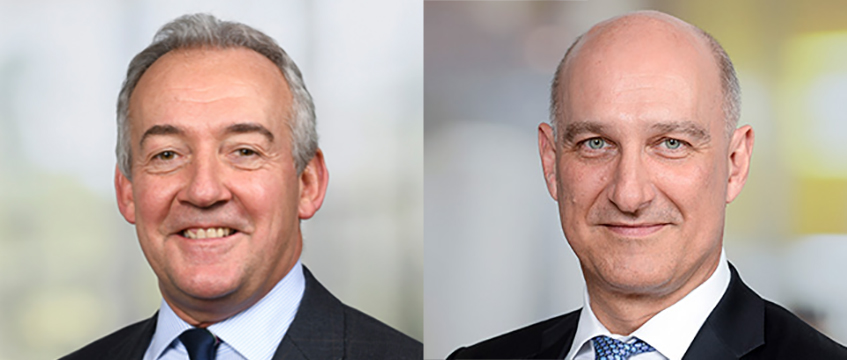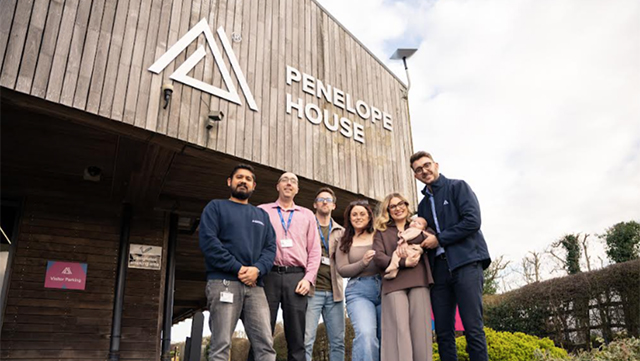Sitting in suits and ties at a boardroom table, Savills chief executive Mark Ridley and chief financial officer Simon Shaw look like they are comfortably back to the pre-pandemic way of doing business. Almost. “This tie is chafing,” laughs Shaw.
Today’s set of results showed a business that Ridley and Shaw will hope is also heading back to normality. In a video interview with EG, the pair say they are happy with the “resilient” figures – a smaller fall in transactional and advisory revenues than the broader market decline and a decent performance in less transactional businesses such as property management. Group revenue dropped by 9% and profit slid by 28%.
The balance sheet has been strengthened and net cash grew from £28.5m in 2019 to almost £178m. “That all speaks to a reasonable navigation of pretty difficult waters,” says Shaw.
Analysts at Numis described the results as “a robust performance in light of the challenges Covid presented for the real estate market”, while UBS said the figures were “comfortably ahead of expectations”.
Standout performers
The UK and Asia Pacific were regional standouts, with profit down by just 4% in the UK and 1% in APAC. In terms of business lines, UK residential delivered an “amazing” performance, Ridley adds, with revenue up by 10% and momentum continuing into the start of this year; exchanges were up by some 79% in January and February.
Property management was another standout, with revenue up 2% globally, notable rises in the UK, Europe and the Middle East offsetting a fall in Asia. The business might not grab the attention like a huge investment transaction or a landmark leasing deal, but the relationships forged with clients through that work can endure in good and bad times – nothing to be sniffed at in the current crisis.
“The beauty about businesses like that, and some of the long-range consultancy businesses, is they are great relationship builders with clients, and you keep that relationship going through hell and high water, good and bad weather,” Shaw says. “The transactors do benefit from that – and vice versa. If you’re doing a lot of international business, you can’t just tell a Korean investor to go and buy a lump of Paris, you’ve got to say ‘we’ll look after it for you’.”
Ridley says the company will continue to invest in its property management business, especially as it sees rivals scaling back their own offering.
“Because we continue to invest in it in terms of technology and making sure we’ve got the best people, we are winning more and more market share,” he adds. “And some of our competitors, I would say, have either not invested or given up it. They’ve said, ‘well, it’s not an area that we’re going to concentrate on.”
Last year the agency bought Omega, a German property and facilities management business, allowing it to offer property management for the first time in the country. “That has been a hole in the armoury for some years,” says Shaw.
Outlook for acquisitions
On which note, what of the outlook for acquisitions? Other agencies seem eager – CBRE has set up a SPAC and made a fresh flex investment, while Colliers International’ chief executive joked with analysts that he would give them his home phone number if they could identify takeover targets for him.
Savills is taking a more reserved approach. There are some bolt-on buys in its sights, including some consultancy acquisitions in APAC. But, as Shaw notes, revenue growth for the company over the past decade has been 70% organic and 30% acquisitive. “Strategic bolt-ons and infills, we’ve done over the past decade and we will continue to,” he said. “We don’t believe in road warrior mega-mergers because we believe they generally detract from shareholder value.”
Ridley adds: “We’re not putting a sign up saying, ‘ring us, we want to buy your business’. We’re not webuyanycar.com.”
To send feedback, e-mail tim.burke@egi.co.uk or tweet @_tim_burke or @estatesgazette











